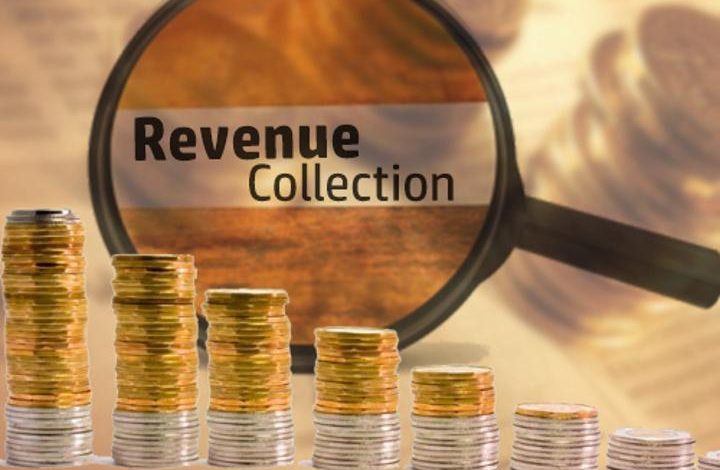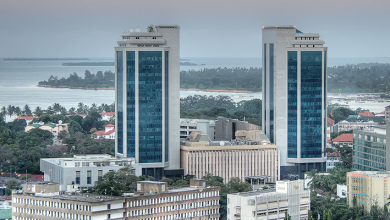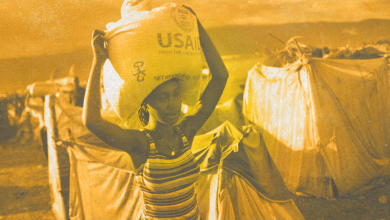How TZ boosts investment, revenue

DAR ES SALAAM: THE government through the Planning and Investment Ministry in the on-going 2024/2025 Financial Year has continued to record major strides with the Treasury Registrar Office generating 664.53bn/- as revenue while the Tanzania Investment Centre (TIC) registering 21tri/- worth projects.
In any country, the investment sector plays a crucial role in creating jobs, foreign currencies and revenue generation, transfer of technology, sparking innovation, improvement of citizens’ living standards and economic growth at large.
Presenting the budget estimate for the 2025/2026 FY recently in the parliament, Minister for Planning and Investment, Professor Kitila Mkumbo said the impressive feats echo the sixth phase government’s commitment to improving investment atmosphere and efficiency of the public entities.
He said the Treasury Registrar Office in the period covering between July 2024 and March 2025 collected the revenues totalling 664.53bn/- which was generated from a 15 per cent dividend of public entities’ gross income, earnings from operating the Traffic Monitoring System (TTMS) and loan repayments among others.
He said such revenue collected is equivalent 60 per cent of the set target which was 1.113tri/-.
On attracting investors, he said in the corresponding period, the Tanzania Investment Centre (TIC) registered a total of 691 new projects worth 7,997.06 million US dollars (over 21tri/-), expected to generate 298,257 new jobs.
He said the registration of projects represents a 35.8 per cent increase compared to the 509 projects registered in 2023/2024 FY valued 5,825.00 million US dollars (about 16tri/-) which created over 130,200 new jobs.
In the total of 681 projects registered in the 2024/25 FY, 32 per cent are fully owned by domestic investors, 23 per cent are joint ventures and the remaining 45 per cent are Foreign Direct Investment (FDI).
Overall, Prof Mkumbo said in the four years of the sixth phase government, the number of projects registered by TIC has increased from 256 projects worth 3,749 million US dollars (about 10tri/-) in 2021 to 901 projects worth 9,313 million US dollars ( over 25tri/-) in 2024.
He said the five leading sectors in attracting investors are manufacturing which accounted for 41.8 per cent of all projects, transportation 15.3 per cent, construction of commercial buildings 10.1 per cent, tourism 8.4 per cent and agriculture 7.3 per cent.
He said all the projects in the five leading sectors collectively attracted a total of 6.071 billion US dollars (about 16tri/-), equivalent to 65.2 per cent of the total capital attracted in 2024.
Also, Prof Mkumbo said remarkable achievements have been noticed in attracting investment in Special Economic Zones (SEZ) under the Export Processing Zones Authority (EPZA) which in the past four years registered a total of 45 projects worth 1,171.97 million US dollars (about 3tri/-) creating over 20,600 jobs across the country.
A total of 121.33bn/- was appropriated to the Ministry of Planning and Investment in the 2024/2025 FY, out of which 100.25bn/- for recurrent expenditure and 21.08bn/- for development expenditure. The recurrent expenditure includes 82.36bn/- for other charges and 17.89bn/- for salaries.
Prof Mkumbo said the development expenditure’s allocation included 15.59bn/- from domestic sources and 5.49bn/- from external sources. The approved budget for the upcoming 2025/2026 Financial Year is over 148bn/- out of which 122bn/- for recurrent expenditure and 26bn/- for development projects.
The budget is poised accomplished key objectives including to finalise merging of TIC with the EPZA to form the Tanzania Investment and Special Economic Zones Authority (TISEZA) as well as drafting National Development Vision 2050.
Commenting on Tanzania’s impressive feat in attracting investments, Economist cum Investment Banker, Dr Hildebrand Shayo said Tanzania has been ascending as the great destination to launch a business due to its business-forward orientation and low-risk environment.
Furthermore, Dr Shayo said Tanzania’s pivotal commercial centre in the East African Community’s (EAC) area supported enhanced business environment increasingly makes the country becomes a desirable destination for investors.
ALSO READ: From guesswork to GPS, fishing crackdown begins
In another development, he attributed the achievement in attracting investors to development of economic infrastructure including roads, airports, railways and ports.
“Tanzania is going to have one of the greatest infrastructures in the region, in contrast to the rest of the EAC” Dr Shayo noted citing the on-going construction of the electrified Standard Gauge Railway (SGR).
Nevertheless, he appreciated the government under President Samia for embracing a proactive and transparent strategy to draw in FDIs which position the nation as a pro-business focal centre.
He appreciated the government for putting in place laws that are transparent and stable, as well as establishing free zones, regional and world-class infrastructure and business-friendly policies.
Geographically, Tanzania is bordered by eight countries including Kenya, Uganda, Rwanda, Burundi, the Democratic Republic of Congo, Zambia, Malawi and Mozambique and has been providing vital access to the Indian Ocean through the Dar es Salaam and Mtwara ports.
Such geographical advantage makes the country serves as a crucial hub for trade in the East African Community (EAC) and the Southern African Development Community (SADC).
Business Expert Dr Sylivester Jotta, who doubles as the entrepreneurship lecturer at the Saint Augustine University of Tanzania (SAUT) attributed the country’s success in attracting investments to presence of predictable business policies and laws including the New Investment Act of 2022 which gives confidence to investors.
The new Investment Act provides fiscal incentives to the expansion and rehabilitation projects from which investors can enjoy import duty-free for capital goods such as machines and plants, while the deemed capital good can access the import duty relief by 75 per cent while enjoying non-fiscal incentives including protection of their capitals under the TIC.
The new Act also reduced capital threshold for domestic investors to 50,000 US dollars (134m/-) from 100,000 US dollars (269m/-).
Moreover, Dr Jotta appreciated President Dr Samia for undertaking ministerial structure reforms by formulating the Ministry of Planning and Investment under the President Office namely President Office (Planning and Investment).
He said by placing the ministry under the president’s office, Dr Samia amplifies the country’s commitment to boosting investments.
The ministry is mandated on among others to formulate and monitor implementation of policies on investment, coordination of promotion and facilitation of Domestic and Foreign Investment as well as monitoring performance of extra ministerial departments including the TIC affairs.
Economic Diplomacy Expert, Professor Kitojo Wetengere lauded Tanzania’s good diplomatic relation with the fellow member states in the EAC and SADC by collaborating in trade and establishing joint economic infrastructures such as railways.
As the result, Prof Wetengere said investors see Tanzania as gateway to the EAC and SADC markets.
He called upon the government to continue ensuring Tanzania is interconnected with other EAC and SADC’s countries through transport infrastructure including railways, roads and airports which are vital in accelerating regional trade and investments.
Prof Wetengere said presence of abundant natural resources including gas, minerals, water bodies, vast fertile land and wild animals in the country also attract investors.
Meanwhile, Director and Founder of Akberalis Hardware and Electric Limited, Mr Akberalis Jozer based in Dar es Salaam said the country under President Dr Samia has continued to experience good governance and rule of law which significantly mitigated bureaucracy.
He said the Akberalis Hardware and Electric Limited which ventures in manufacturing aluminium ladders and Polypropylene (PP) Ropes has been operating smoothly.
“There is no threat to investors. Government officials have been supporting us to align with investment regulations and rules,” Mr Jozer said.
Mr Alibhai said their company is valued at 660,000 US dollars (1.78bn/-), apart from serving the local market also has been reaching neighbouring countries including Kenya.





